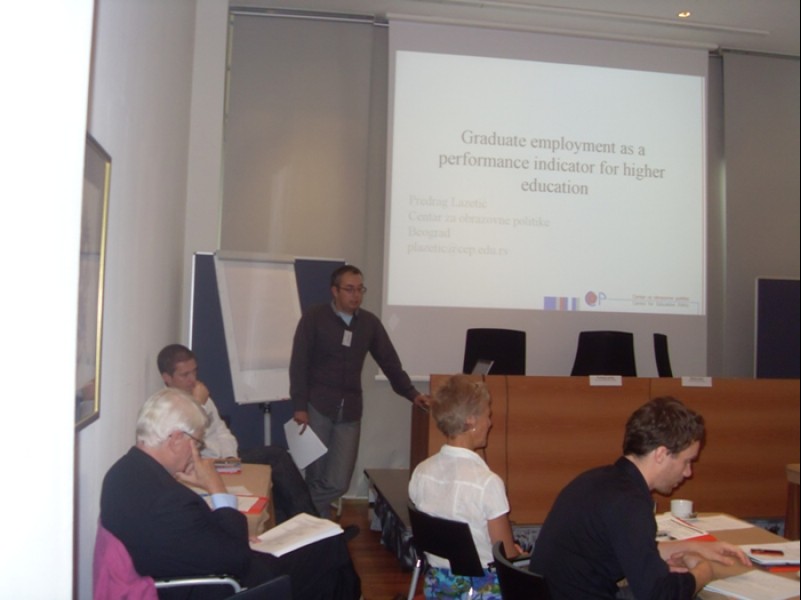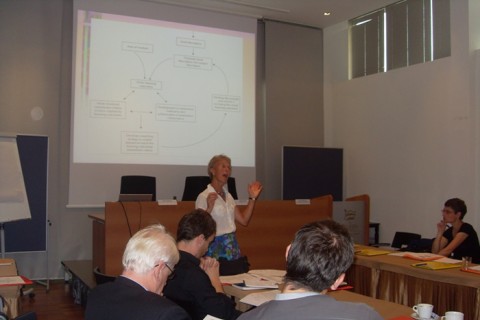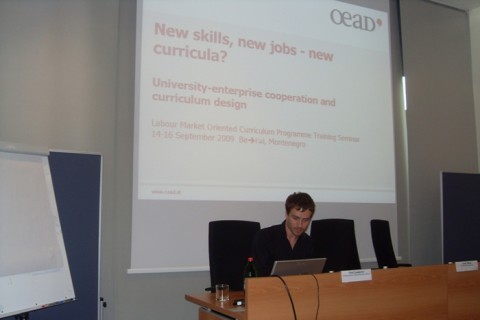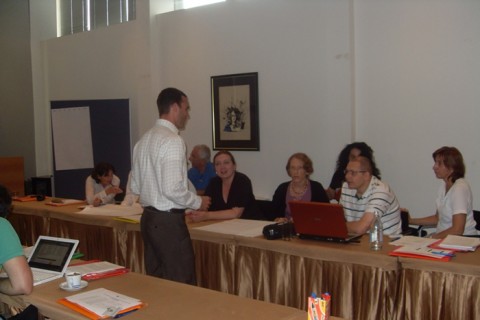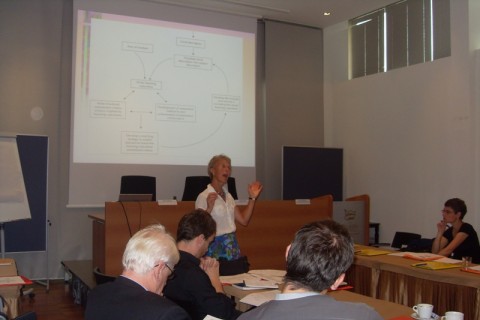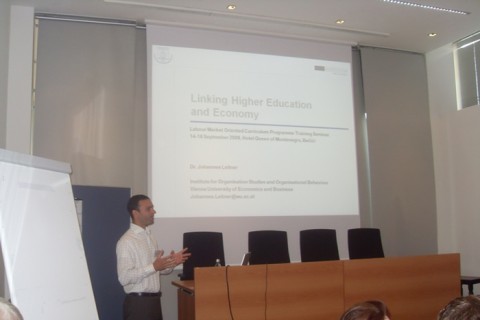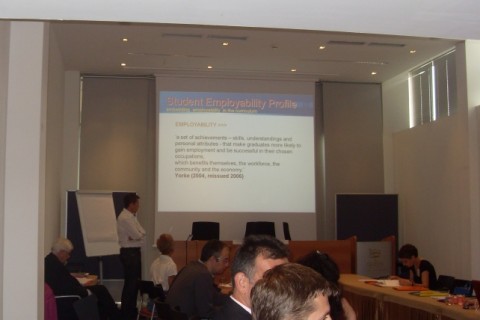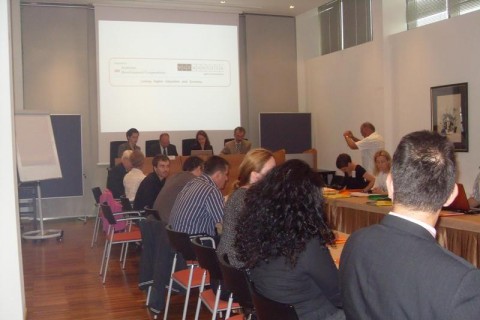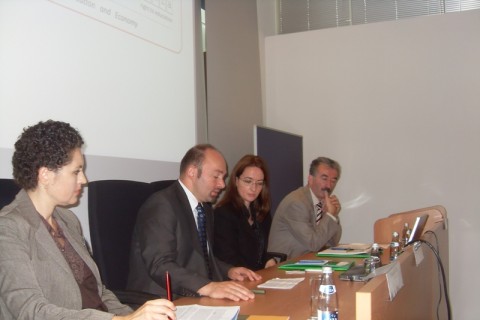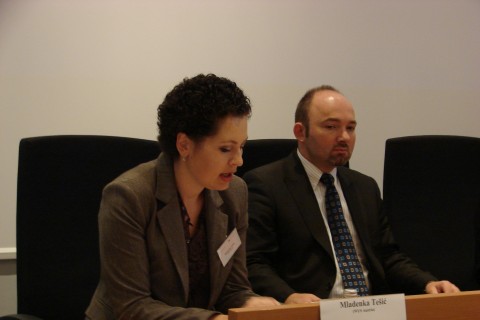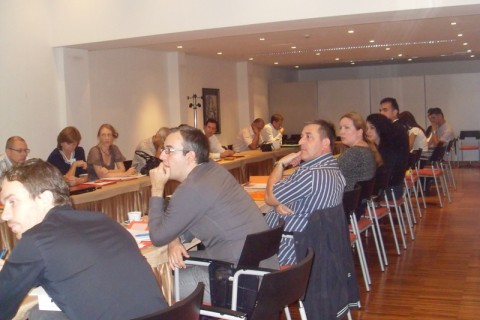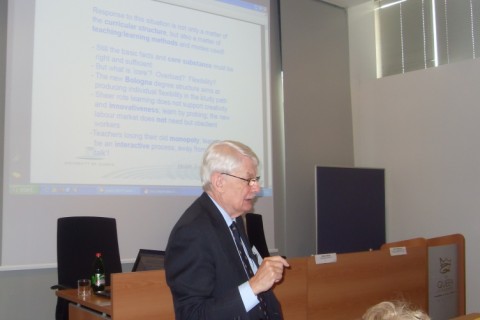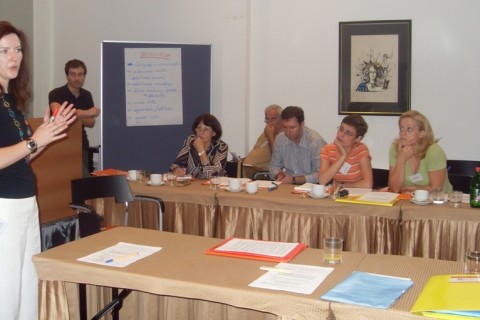Labour Market Oriented Curriculum training seminar
Podgorica. A three-day training seminar on Labour Market Oriented Curricula development was organised in the hotel Queen of Montenegro in Becici in the period from 14th to 16th September 2009.
New Austrian Ambassador to Montenegro, HE Martin Pammer on his first day on duty opened the Labour Market Oriented Curriculum Programme (LMOCP) training seminar in Becici on 14th September 2009. He took the opportunity to reconfirm Austria’s commitment to cooperate with and support Montenegro in the field of education and especially Higher Education, which is further reinforced by the recently signed Cooperation Agreement in the field of Science between Austrian and Montenegrin Ministers of Science. Ambassador Pammer emphasised the importance of the seminar and the topic since “in times of the economic crisis, it is clear that especially higher education and research needs good attention and resources, as universities are the ones which inject new innovations in the economy and therefore the labour market.”
Professor Andjelko Lojpur, Vice-Rector for Teaching at the University of Montenegro, said that it was evident that connection between higher education and economy in Montenegro was high on the political agenda, having in mind the EU accession process, therefore the support that WUS Austria offered to the University of Montenegro and the country itself, was of a great importance.
Labour Market Oriented Curriculum seminar dealt with the establishment of concrete cooperation mechanisms between universities and the business sector when it comes to curricula development and students skills and knowledge development which will foster higher rate of graduates employability, increase their abilities to keep the newly-found jobs as well as their flexibility to find new employment. The seminar consisted of plenary seesions on the first day, which were open to wider auditorium, and workshops which were organised on the second and third day of the seminar for the project grantees and their corporate partners. Seminar agenda can be downloaded here.The project grantees are the following four faculties of the University of Montenegro:
1) Faculty of Tourism and Hotel Management, Tourism Masters study programme
2) Faculty of Maritime studies, Advances in Marine Technologies
3) Faculty of Applied Physiotherapy, Professional skills development and reflective practice
4) Faculty of Science and Mathematics, Experimental Biology and Biotechnology
Through best practice examples on cooperation between economy and univeristies in creating and constant upgrading of curricula in the EU and South East Europe, the seminar served also as an incentive to create initiatives for structured partnerships between universities and the business sector, in order to increase interdisciplinarity and transdisciplinarity of study programmes. At the same time, the university, while preserving its autonomy, would be more open for interaction with the wider society, not only the business sector, in the creation of knowledge. This is especially important when having in mind that today’s trend in the EU and the world is that graduates, once they are on the labour market, have to prove that in addition to the theoretical knowledge they also acquired certain competences through learning and learning outcomes. Nowadays, employers require not only professional, but also generic soft skills, such as analytical and critical thinking, ability to work in a team, problem solving, communication and presentation skills, ability to apply acquired knoweldge in new situations, as well as civic knowledge and engagement, ethical reasoning and action and intercultural knowledge and competence.
Presentations at the seminar were given by prominent international and home education experts as well as professionals from the business sector:
- The new, and old, challenges for the future higher education Ossi Lindqvist, Professor Emeritus, University of Kuopio, Finland
- New skills, new jobs, new curricula: university-enterprise cooperation and curriculum design Mag. David Baldinger, Austrian Agency for International Cooperation in Education and Research (OeAD-GmbH)
- Thoughts on the changing quality of learning that we should expect at the different levels of higher education Dr Jenny Moon, Bournemouth University, UK
- Graduate employment as a performance indicator for higher educationPredrag Lazetić, Centre for Entrepreneurship, Beograd
- Student employability profile Dr Marko Savić, State University of Novi Pazar
- Mechanisms of cooperation between HE institution and corporate partner Zoran Paunovic, Institute Dr Simo Milosevic in Igalo
- Employability – the Way Forward: The Perspective of the University of Vienna Mag. Gisela Kriegler Kastelic (presentation), Centre for Teaching and Learning (CFL), University of Vienna
- Case study method as teaching and learning tool Dr Johannes Leitner, Vienna University of Economics and Business
Labour Market Oriented Curriculum training seminar was organised as one of the activites envisaged under the programme „Support to Higher Education in Montenegro 2007-2010“ financed by the Austrian Development Cooperation.

